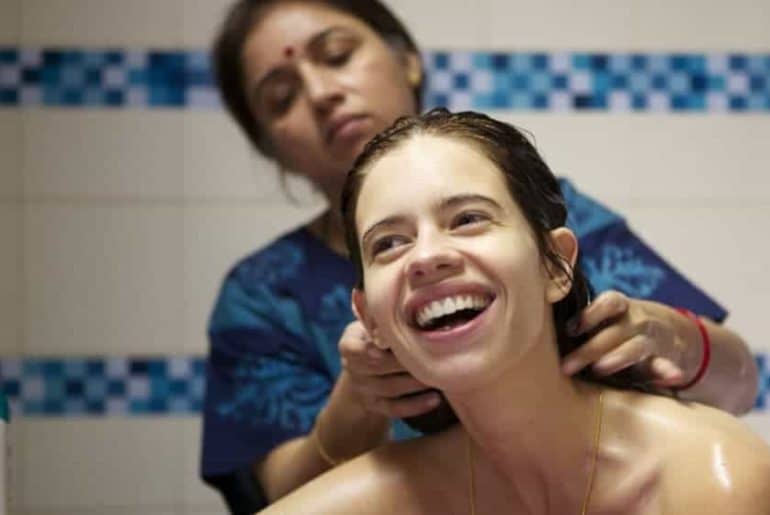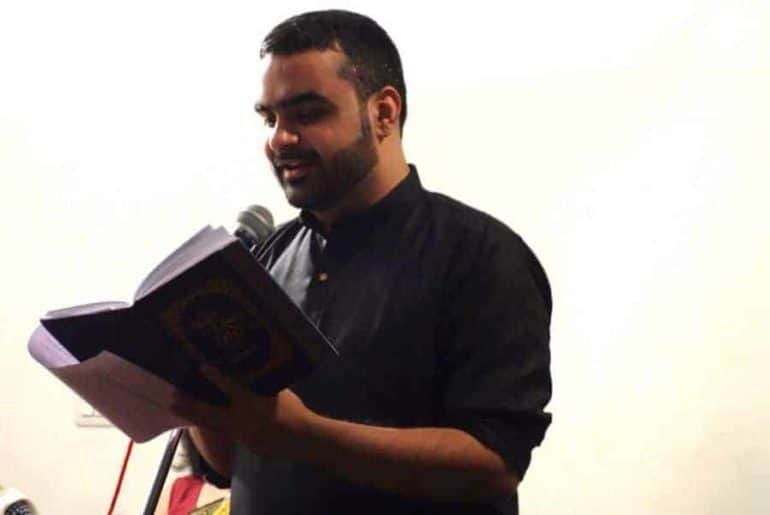The effigy burning, along with a rally, organised on 14 June, came as a follow-up to the protests of 11 June.
On the morning of 14 June, student organisations gathered at the Gate No. 4 of the Arts Faculty building to protest against “fee hike and faulty admission process in Delhi University.”
Over ten student organisations – among them, All India Students’ Association (AISA), Bhagat Singh Chhatra Ekta Manch (BSCEM), Collective, Krantikari Yuva Sangathan (KYS), Parivartankami Chhatra Sangathan (Pachhas), Pinjra Tod, Students’ Federation of India (SFI) – organised a protest rally and burnt the effigy of the University Vice-Chancellor to raise their demands.
The rally began from the Arts Faculty building and went around the North Campus of the University. The proceedings ended with a public meeting and the effigy burning. This came as a follow-up to an earlier protest by these organisations, raising the same issues, on 11 June.
The protesting students demanded the following:
1. Decreasing the registration fee for Other Backward Classes (OBC) to Rs. 300 and apologizing for the “inconvenience caused.”
2. Decreasing the fee for unreserved category students from Rs. 750 to Rs. 500.
3. Refunding the “extra fee” collected from students.
4. “Immediately resolving” the technical problems in the online registration form.
5. Giving two days to applicants to make corrections in their form after filling it up.
6. Setting the entrance exam question paper in Hindi as well.
7. Providing “proper facilities” should be at the exam centres.
8. Revoking the fee hike in Ramjas College & Bharati College.
9. An “unconditional apology” from the Dean of Students’ Welfare (DSW) for giving “false information” regarding the eligibility criteria for OBC and Economically Weaker Sections (EWS) reservation.
The University had set the registration fee for undergraduate admissions at Rs. 250 and Rs. 100 for OBC and EWS students respectively. The ‘additional registration fee for each entrance-based course’ for the former was Rs. 750 and Rs. 300 for the latter. The same distinction of Rs. 750 and Rs. 300 also applies to the application fee for the postgraduate, MPhil and PhD courses. Even though one of the demands of the protesters was refunding the “extra fee collected from students”, the admission guidelines of the University mention that the registration and entrance exam fees are non-refundable.
The first eight demands had been raised in the previous protests as well. A memorandum had been submitted to the Dean by the protesting organisations, which detailed their position. The protesting students had argued that since the income cut-off limit for both the ‘non-creamy layer’ OBC category and the EWS category was similar; and that the former had been given reservation on three bases – social, economic and educational backwardness – while the EWS was given reservation only owing to their economic backwardness, the fees charged from OBC students should not be higher than that of the EWS ones.
According to some protesters who had met the Dean on 11 June, they were allegedly given wrong information by him about the reservation criteria of the OBC and the EWS categories. Upon discovering the alleged falsehood of the information, the protesters had begun a dharna outside the Dean’s office. Hence, the protesting parties this time demanded an “unconditional apology” from the Dean for the alleged false information as well.
According to Amarjeet Kumar Singh, the DU Law Faculty In-charge of AISA, “The Dean refused to meet today and we were informed that he will response (respond) only on Monday.”
A statement issued by SFI alleged, “Before the rally could even start, the police started manhandling SFI activists and detained several protestors. Seeing pressure mounting from the student community, the police was forced to immediately release the detainees.”
Sumit Kataria, Vice President of SFI Delhi, told DU Beat that he and Ravi Shankar, also an SFI member, were “manhandled” by the police, but didn’t suffer any bruises.
Pachhas also issued a statement which read, “Protest ke dauran police ne apna tanashahi roop dikhate hue Pachhas ke sathi Deepak aur BSCEM ke sathi Ujwal ko maarpeet karte hue giraftar kar liya. Baad mein chhatron ke dabav ke baad unhein chhod diya gaya” – during the protest the police showed their dictatorial nature and arrested Deepak of Pachhas and Ujwal of BSCEM. Later, the police released them due to the pressure of students.
Speaking to DU Beat, Deepak Gupta said that he and Ujjwal were arrested by the police and taken to the Maurice Nagar Police Station. There they were allegedly detained for around half an hour. As the rally approached the police station, the police were brought under pressure to release both of them. He also alleged that he had suffered bruises from the encounter with the police.
We also spoke to Ujwal of BSCEM, the other person who was detained by the police. “SI (sub-inspector) Rohit of Maurice Nagar police station started tussle with a comrade named Deepak who is from PACHAAS (Pachhas). SI was trying to bully him by saying that you don’t have the permission to meet the DSW. I intervened in the conversation and said that we are students of the university and we don’t need police permission to meet the administration officials. I also asked him to show me the notice/permission by the university administration that lead (led) to the entry of police in campus. At this he got ignited and pushed me in the van. He asked another policeman to arrest us. I and Deepak were pushed into the van, we were beaten up by the policeman. Deepak’s slipper also got torn. In a van we were carried to Maurice Nagar police station, the police illegally detained us and ensured that we (do) not join the march. (Afterwards) when the protesting students started approaching the gates of (the) police station they released us,” he said.
The protests are expected to continue in some or the other form if the protesters don’t receive a satisfactory response from the Dean by Monday.
Image credits- Sumit Kataria from SFI
Prateek Pankaj
[email protected]











